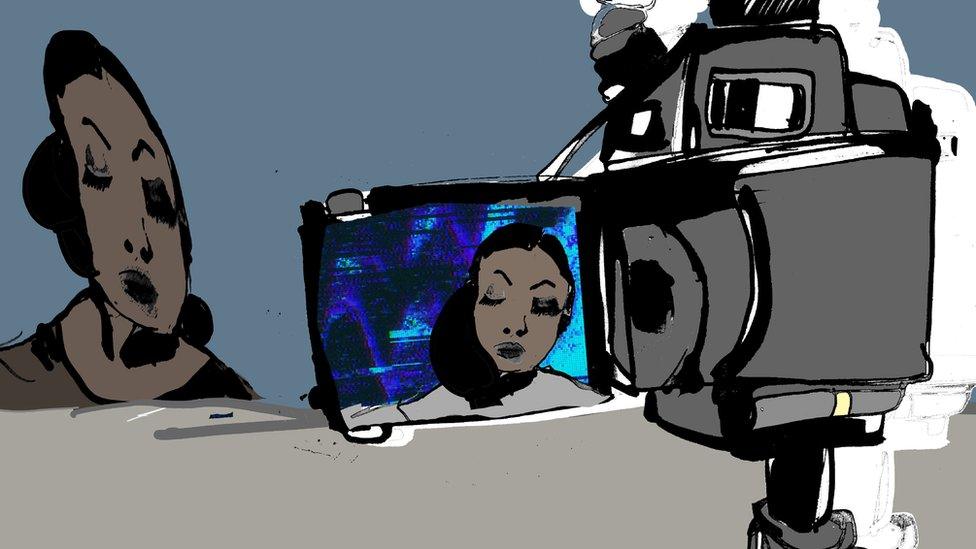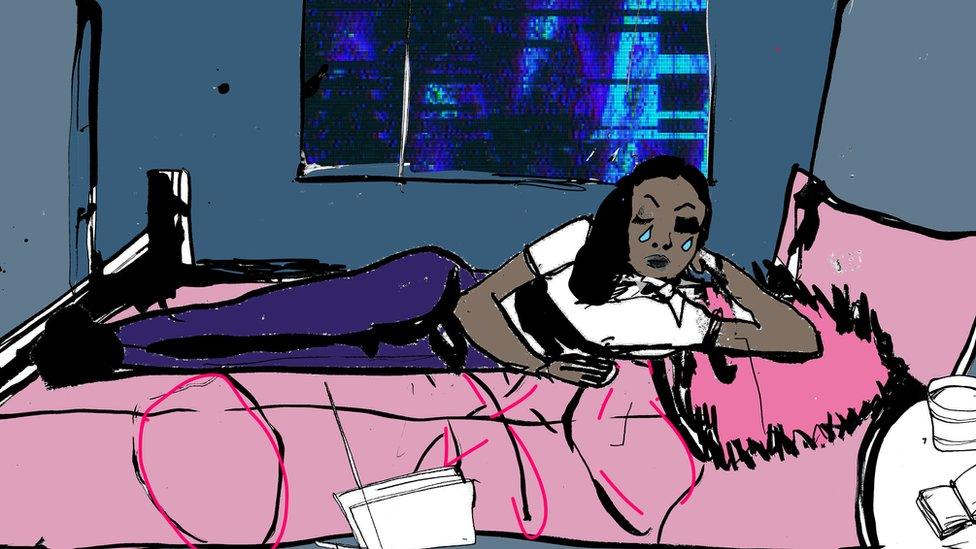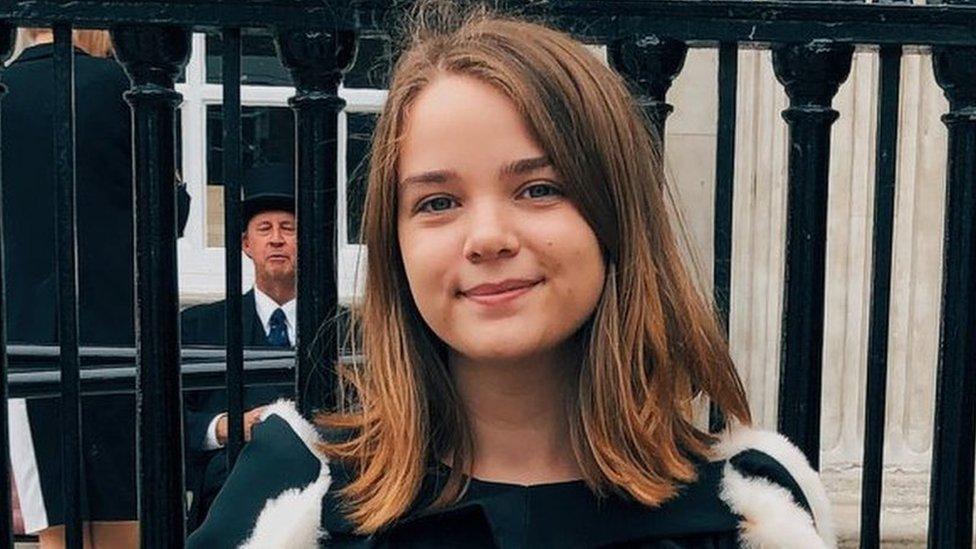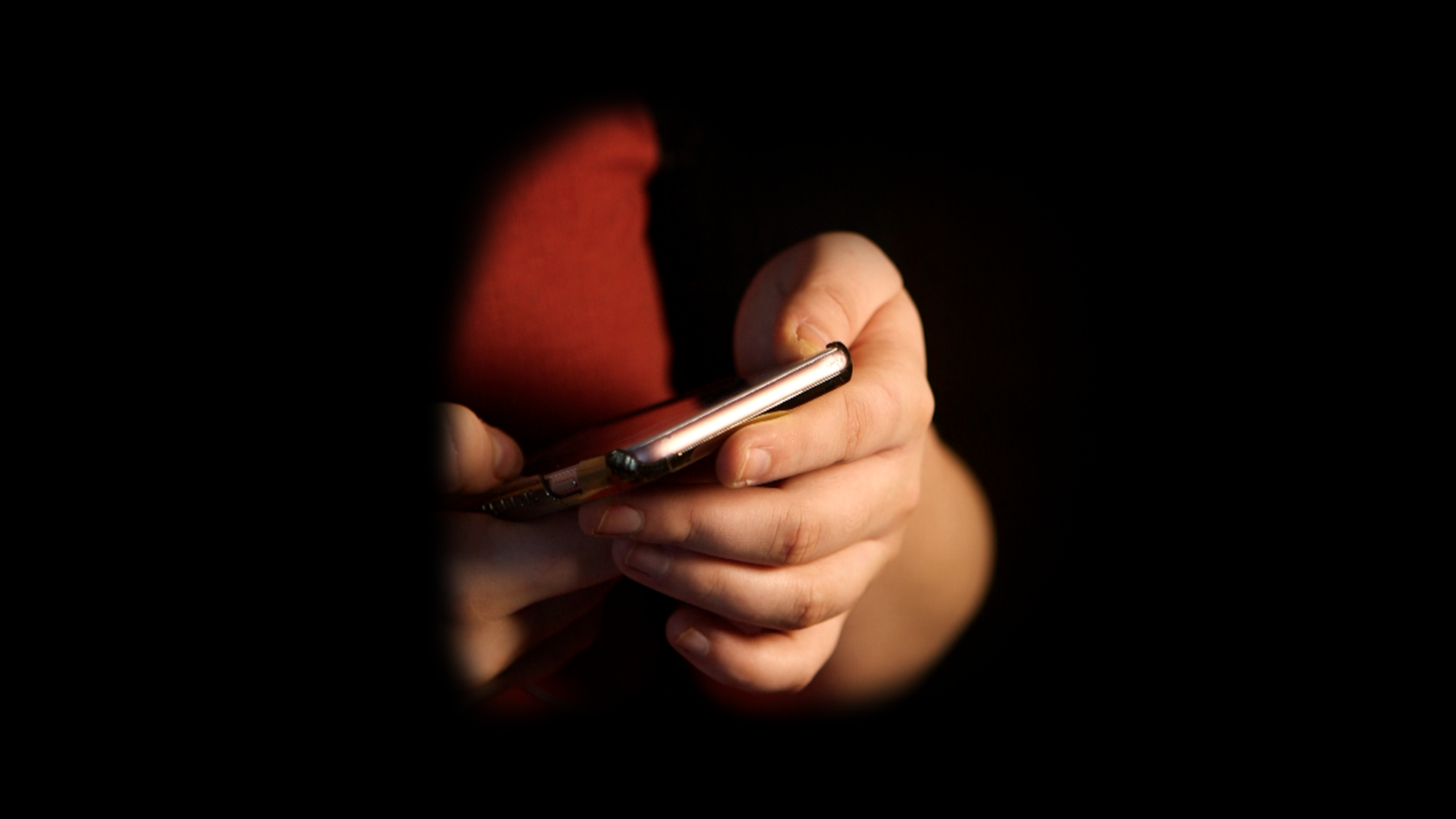Student rape survivor - 'It felt like I was being interrogated'
- Published

Reports of rape, sexual assault and harassment at UK universities have trebled in three years, a BBC investigation suggests.
Universities told the BBC they recorded 1,436 allegations of sexual harassment or sexual violence against students in 2018-19 - up from 476 in 2016-17.
The data, from 124 of 157 universities, shows not all have robust systems to prevent or respond to sexual violence.
Universities said they were making progress in dealing with the issue.
It is believed the increase may partially reflect the fact that some universities have made it easier for students to report allegations and receive support - three years ago universities promised action amid concern about sexual violence on campus.
Panic attacks
Out of the 157 universities contacted by the BBC with a freedom of information request, 124 responded.
Behind the statistics are the experiences of students such as Louisa - not her real name - who was raped by a fellow-student.
She thinks a drink was spiked at a student party, leaving her nauseous and disorientated the next day.
Louisa kept the experience to herself for months, she says, until she confided in friends and family about the reason for her escalating anxiety and depression.
"I felt that there wasn't really any point in being here because I was just constantly on edge, constantly frightened that he was gonna, like, burst through my bedroom door," she said.
Louisa had panic attacks, and found it increasingly difficult to leave her student flat.
She says she began to feel life was not worth living, and attempted suicide.
It was only when she was given hospital treatment for her mental health that she found the courage to go to the police, and then to the university.
'Re-traumatised'
Although she was offered counselling by the university welfare service, the wait was several months, so she sought help elsewhere.
But it was when she had to face questions on camera from two university investigators that Louisa says she felt retraumatised.
They told her they had not investigated a rape or serious sexual assault before, and then went on to ask detailed intimate questions.
"I was starting, just beginning, to heal slightly from it, and that just completely broke that down again," she says.
"And they asked me to talk about my mental health. It felt like I was being interrogated."
Three years ago Universities UK, which speaks for 130 of the largest institutions, promised change in response to growing concern about sexual violence on campus.
A special taskforce came up with a series of recommendations to prevent sexual harassment and violence, and to improve the response to victims.
One key guideline was to introduce an approach that involves training students and staff to have the confidence to intervene in inappropriate situations, known as bystander intervention.
Training required
Universities UK endorses this approach, because its effectiveness has been backed by research.
Dr Rachel Fenton, from the University of Exeter, carried out the research in the UK, showing that bystander interventions can work in a changing campus culture.
She says research has shown that victims find it hard to report incidents, and can be retraumatised by poor systems and support.

But just 48 of the universities who responded to the BBC said they were using it.
Only eight carried out an anonymous survey of students to gauge the prevalence of sexual violence, and 75 provided students with specialist support for victims.
Of the 124 universities providing information, 33 confirmed they used specialist investigators, suggesting Louisa's experience is far from isolated.
Dr Fenton said: "Universities need to be using specialist investigators - people who have training on how to hear evidence, on how to assess it, to make sure they don't buy into popular myths about sexual violence."
'No action'
Dr Fenton is part of a team of academics across several universities who have just carried out a national study to investigate how British universities are responding to sexual violence.
The BBC has exclusive access to this, and it reveals that some working within universities believe their institutions are too concerned about the risk to their reputations.
While some universities have appointed specialist staff, making it easier for victims of sexual violence to report and be supported, others - it seems - are not.
Dr Fenton says this means students face different campus cultures and different levels of support.
"I think we're at the point where we have to have accountability, with legal obligations on universities that they have to adhere to baseline criteria, to get any kind of consistency."

The university decided to take no action against the man Louisa had accused of rape.
A spokesman for Universities UK said: "Students and staff must feel able to report an incident with the confidence that it will be addressed, and an increase in disclosures suggests more willingness to report as well as a growing awareness about what constitutes sexual misconduct.
"Our own research shows that while universities are making progress, more must be done.
"Since 2016, the vast majority have improved support for students reporting incidents and updated their disciplinary procedures.
"We will be releasing more details shortly on the steps taken to tackle harassment and hate crime and how universities can continue to make progress".
Louisa is considering dropping out, and says she is angry that by the end she felt as though it would almost have been better to keep her experience to herself.
"A lot of people don't report because they see how bad the system is.
"There are a lot of victims out there who are probably just sat in their uni rooms, not going to lectures, not doing anything because this awful thing has happened to them.
"And they feel that their university won't listen," she said.
Illustrations by Katie Horwich.
- Published17 September 2019

- Published30 September 2019

- Published28 May 2019

